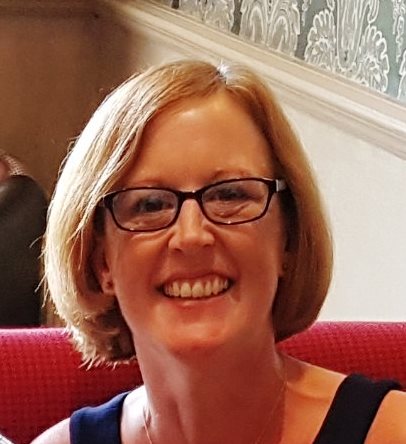
Personalised care must be at the heart of transformation

Helen Hassell is mum to Karl, a 23-year-old with complex physical and learning disability needs.
A passionate advocate for personalised care, Helen is a member of My Life Choices and the NHS Assembly and draws on her experiences of Karl’s care to inform transformation of our health and care services.
Karl’s story
Karl has both physical and learning disability needs, having been born with spina bifida, hydrocephalus and developed epilepsy; he has experienced significant neuro-surgical input resulting in 46 operations. At best, my family has had a space of two years between these operations, at the worst, Karl has endured one operation every week for six weeks. The NHS staff, both surgeons and nurses, are absolutely key to supporting not only the child but also the family at such a testing time.
Karl had a great experience in a mainstream primary school, but we realised when planning for the move into secondary education he needed more specialist support. Children’s services were absolutely brilliant at operating in a holistic way, working the family, the organisations and the structures around the child and the child’s needs. The service we received absolutely felt like an early version of personalised care, and this was 15 years ago.
We had a fairly uneventful journey through children’s services and education, receiving great support from our social worker who ensured access to the various different support services and respite, which were invaluable to us as a family, particularly as we had no family locally to support us.
Moving to adult social care
The real crisis hit at transition, it started late, it was only four months before Karl was 18 and he was told he would have to be reassessed for each service, however in adult social care Karl either needed to be categorised as having a physical disability or a learning disability and yet he had both. There wasn’t a box for this.
As a family, transition is an emotional time, the NHS staff that have supported you for 17 years are having to say goodbye, you are being reassessed for health and social care services and meeting a whole new set of health and social care staff that don’t know Karl or the family, or the journey that we have been on. It’s like starting all over again.
The experience of secondary care consultants wasn’t positive; Karl needed that transition to go smoothly and for the handover to be seamless and not to be asked whether he had ever considered suicide – he didn’t even know what this meant!
In education, Karl continued to do well and was supported through the education system.
The health and care experience continued to decline with the introduction of adult social care. Using a prescribed list of agencies to try and arrange Karl’s care was disruptive to say the least. Agencies didn’t want to engage; I was told there was “no money to be made in looking after people like Karl” – he was too complicated and too difficult. This all had a highly detrimental impact on Karl’s wellbeing.
I explained that we needed an agency that was going to be here to stay with us, be honest with us, and work together to ensure that Karl was well cared for. We had one person who was great and then after two weeks she left. A new agency sent someone who wasn’t even DBS checked to deliver personal care in our home. By this time, we’d had enough, Karl was broken, he was feeling low and switched off from the world. He developed anxiety, depression, was sleeping during the day and didn’t feel like he had a real sense of purpose. As his mum, I had to stop this and make a change. At this point we were 50 per cent funded by health and 50 per cent funded by social care, but the problem was we were caught in the middle – neither had overall responsibility to provide joined-up care.
This blog was written in partnership with NHS Confederation. Follow Helen on Twitter @helenhassell2
My Life Choices is the highly valued co-production group driving service redesign in Nottingham and Nottinghamshire ICS, but it also believes that strategic involvement of patients, carers, service users should be at the heart of our health and care transformation design journey if we are to be successful.
